Austral Starliner (Leyland
Leopard
PSU3A/4RT)* mobile home
 This
coach is being used initially as a semi-stationary mobile home to enable
us to undertake extensive renovations and changes to the layout of our house, and then to
provide comfortable, self-contained accommodation for any visitors (as the
house is very small and has no extra bedrooms). It will also be registered
on Club Plates (along with the rest of the 'Kelly
St Classics') and used for the occasional trip while we renovate the
house, but we have every intention of taking a leisurely trip around
Australia in it eventually.
This
coach is being used initially as a semi-stationary mobile home to enable
us to undertake extensive renovations and changes to the layout of our house, and then to
provide comfortable, self-contained accommodation for any visitors (as the
house is very small and has no extra bedrooms). It will also be registered
on Club Plates (along with the rest of the 'Kelly
St Classics') and used for the occasional trip while we renovate the
house, but we have every intention of taking a leisurely trip around
Australia in it eventually.
It was finally selected from a long list of possible purchases, being a well-executed and comprehensive conversion done by the previous, lovely Tasmanian owners Nev and Cath (photos of the conversion and early life as a mobile home can be seen here).
This Leopard coach has the classic mid-mount horizontal Leyland O.680 11.1 litre engine and 5-speed Pneumocyclic gearbox with Eaton 2-speed axle.
Only after quite intensive research did I discover that I knew the coach well, as it had previously been number 32 in the Martyrs Bus Service fleet! (I was Operations Manager at Martyrs throughout the 1990s). Some photos of its Martyrs livery appear lower down this page (click here to jump to the Martyrs photos). But its history was to prove much more interesting once I delved deeper...not only is it an admirable and intelligent mobile home conversion, but it is a classic vehicle with a history totally worthy of membership of the Kelly St Classics family! Read on!
It started life in the UK in June 1970 as a Leyland Leopard PSU3A/4RT* with a Duple Northern Commander IV tour coach body, operated by Southdown Motor Services as fleet number 1818 with registration number of RUF818H. It was one of 20 purchased new in 1970 (with consecutive registrations RUF800H to RUF819H). Southdown's tour coaches were sumptuously appointed, with a mere 32 substantial reclining seats in their 36ft. length, compared to standard coaches which usually had between 47 and 53 seats.
By 1970 Southdown had been absorbed by National Bus Company. Originally RUF818H was in the attractive Southdown green livery that was retained for coach operations, but by the mid 1970s it was repainted in the generic white-based NBC livery. Amazingly, I was able to track down photographs of this actual coach with its original body, both in original Southdown livery and the subsequent National livery (click here to jump to the Southdown/NBC photos).
In the mid 1980s the NSW Transport (Australia) regulations had a loophole - subsequently closed - where a refurbished chassis could be rebodied, and then redated to the rebody date. Twelve Leyland chassis were imported from the UK by Graham Hopkinson and rebodied under this scheme, ten of which emerged from the Queensland (Geebung, Brisbane) Austral** factory as 1984 Austral Starliner coaches and Metroliner buses and put into service with Hopkinsons Transport, Smithfield (Sydney). This particular Starliner coach had registration number m/o 5884, replacing a Bedford VAM70 (click here to see the bus as a Hopkinsons coach). (The other two chassis were rebodied by Custom Coaches - many thanks to Ty Manning for these details and the photograph of the bus in Hopkinsons livery).
Martyrs Bus Service in Warburton, Victoria purchased two of these Starliners from Hopkinsons, where they were used on longer-distance school runs and charter work. Number 32 (this vehicle) was allocated to one of the star drivers at Martyrs, who kept the coach absolutely pristine. After Martyrs sold it as part of a fleet modernisation programme, it went to Wallace Coaches in Ulverstone, Tasmania, where it spent the next decade or so as a school bus (click here to see photos of it as a part of the Wallace fleet).
A few photos of the coach at its new home
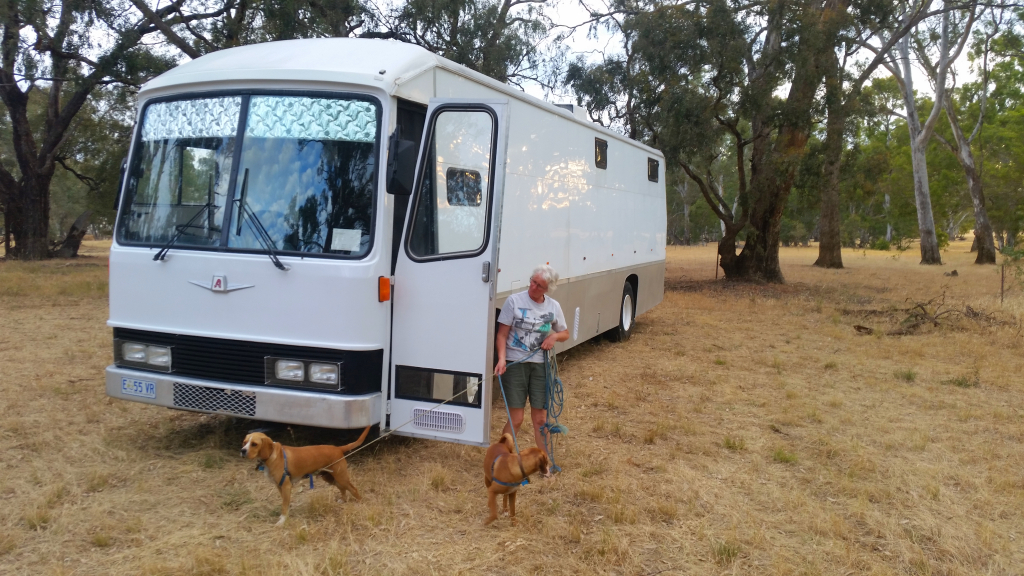
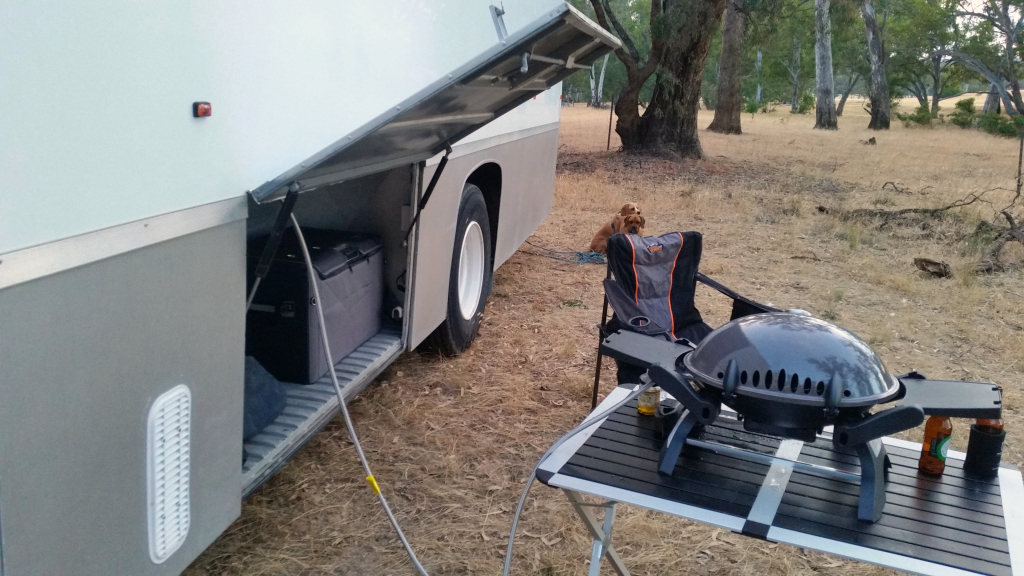
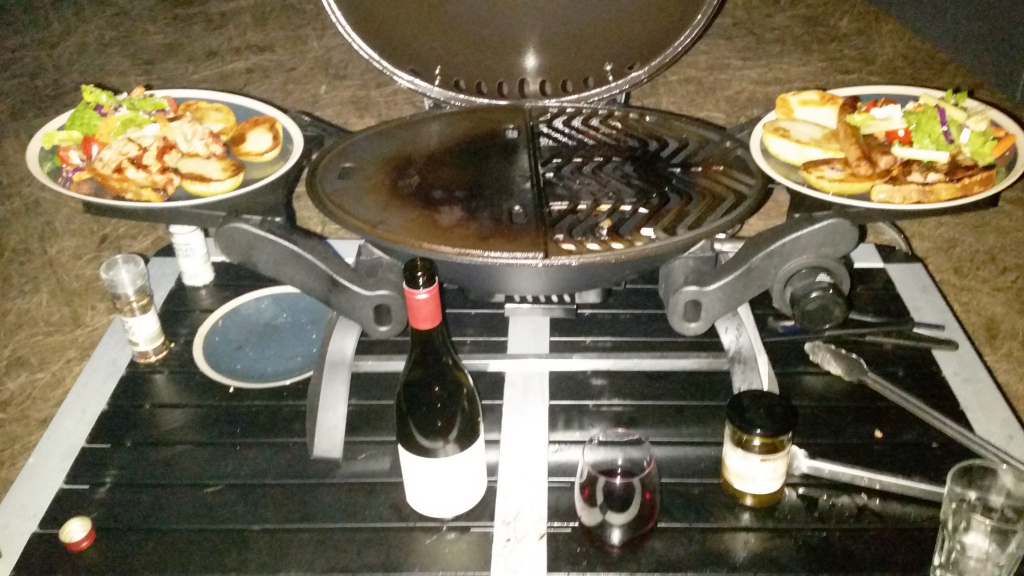

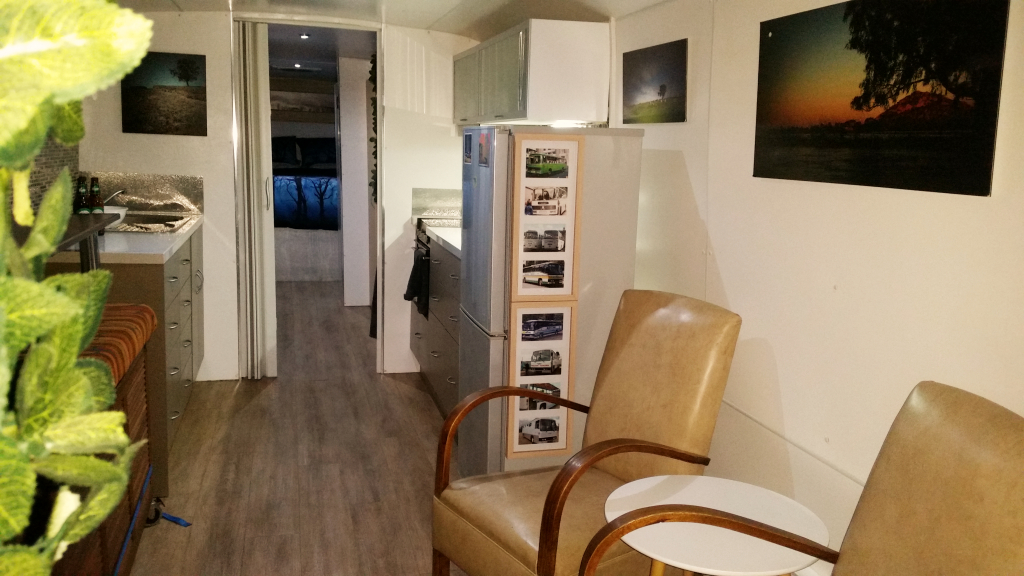
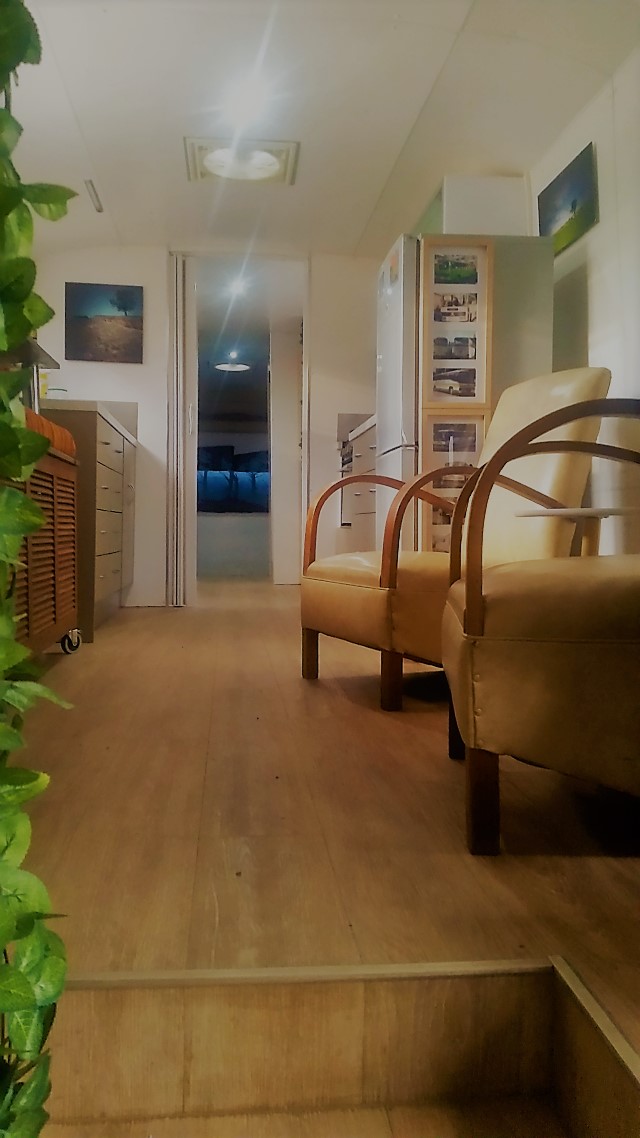
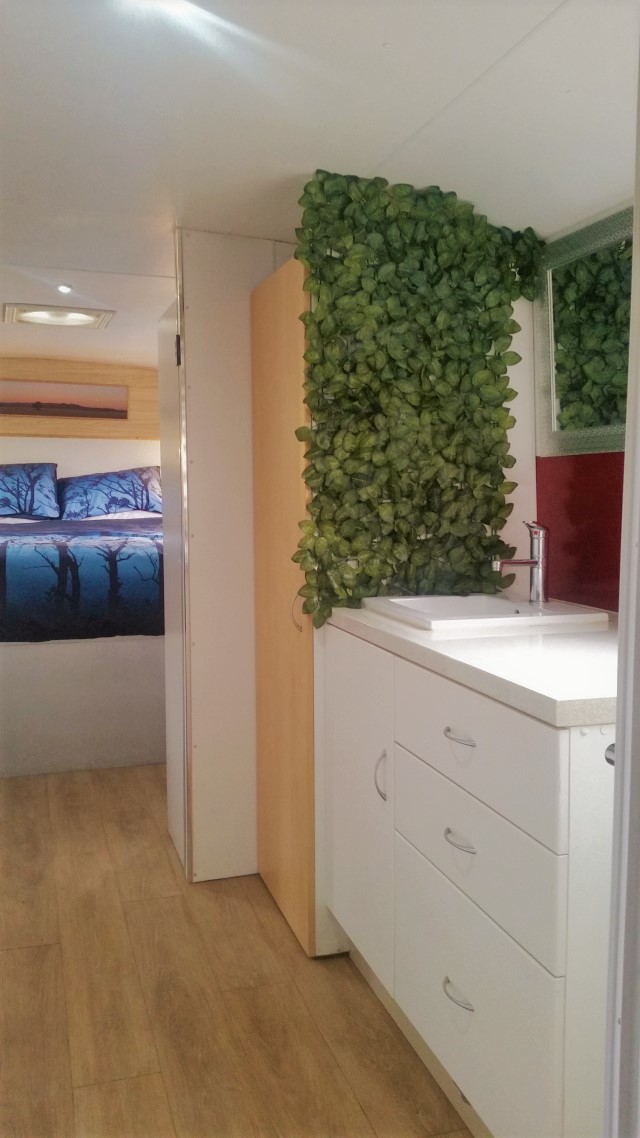
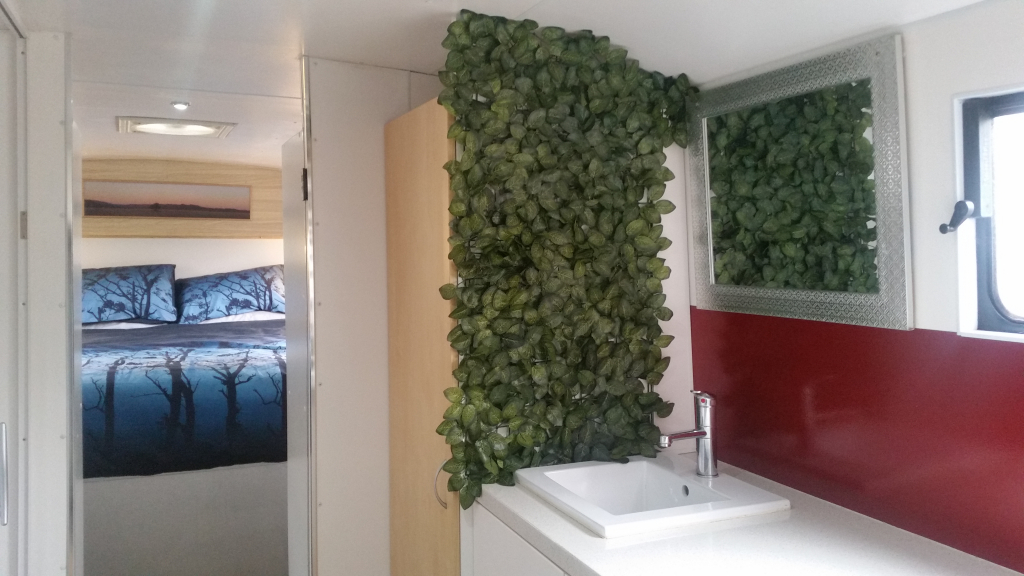
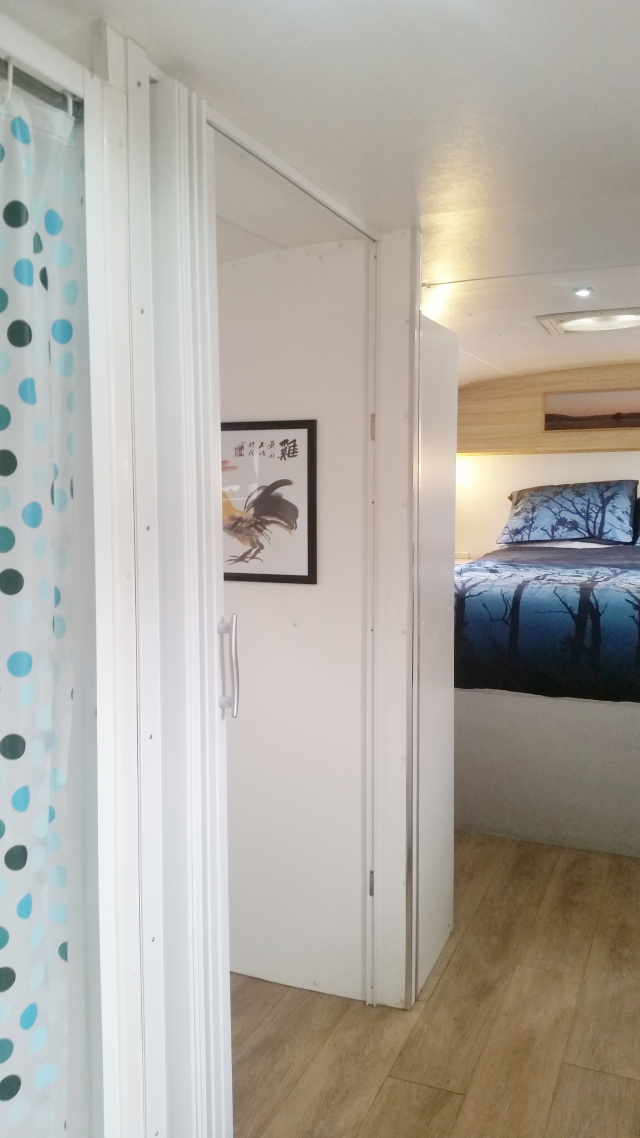
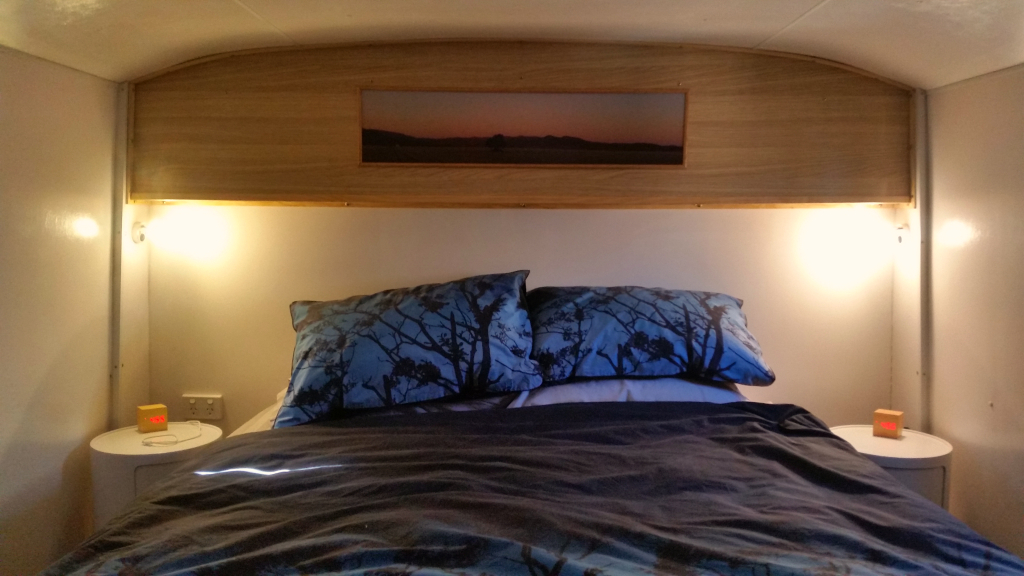
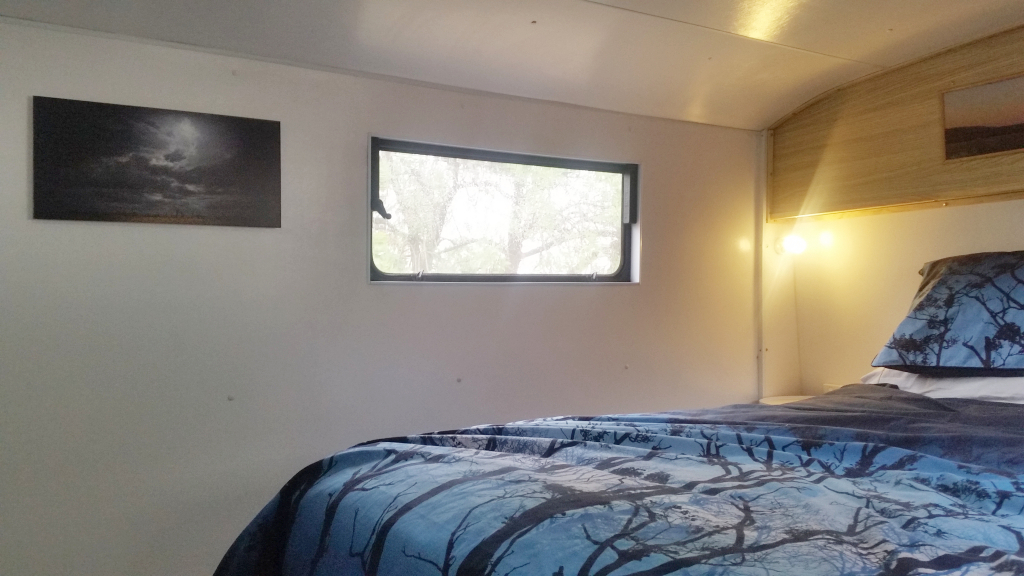
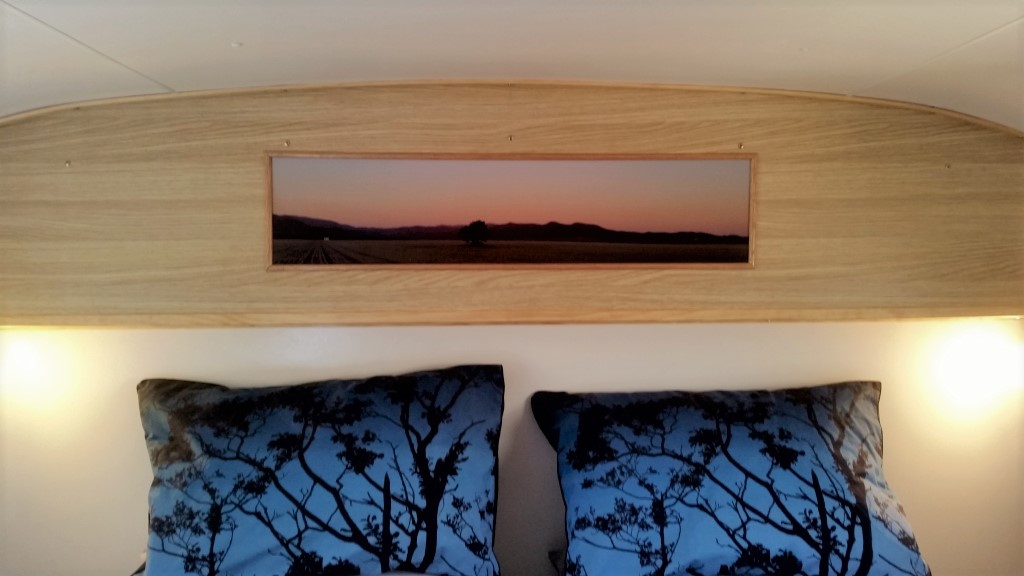
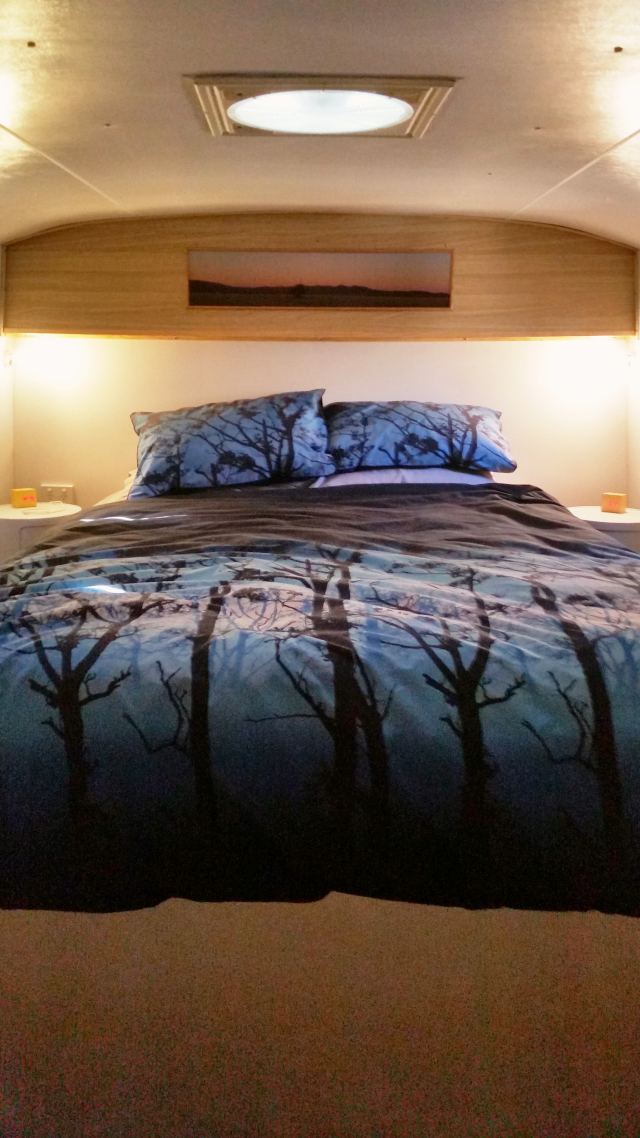
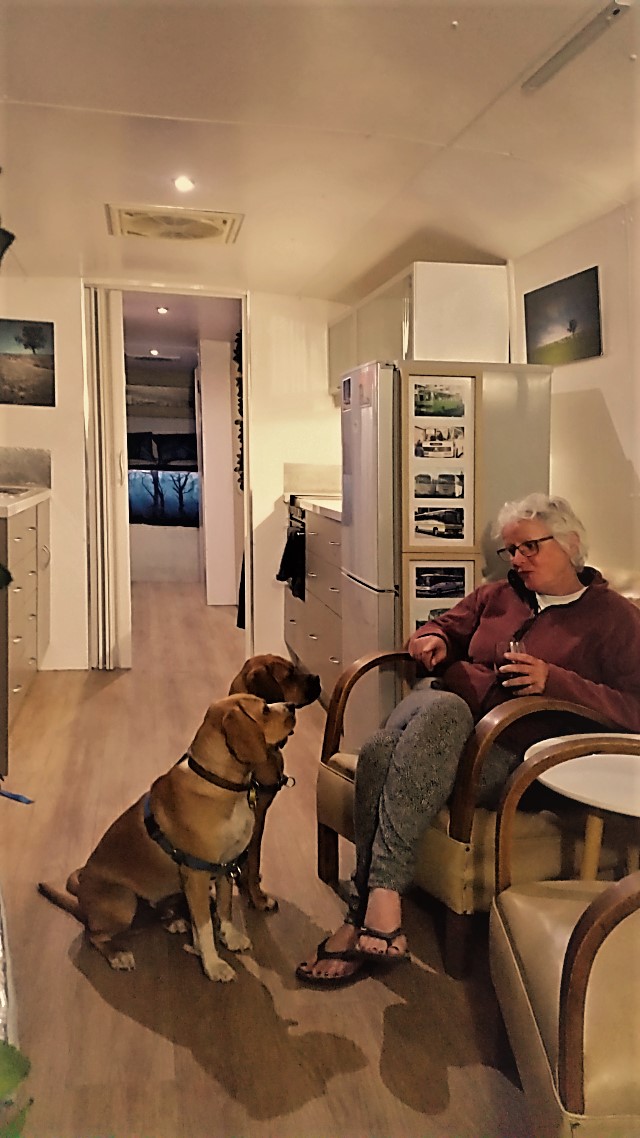
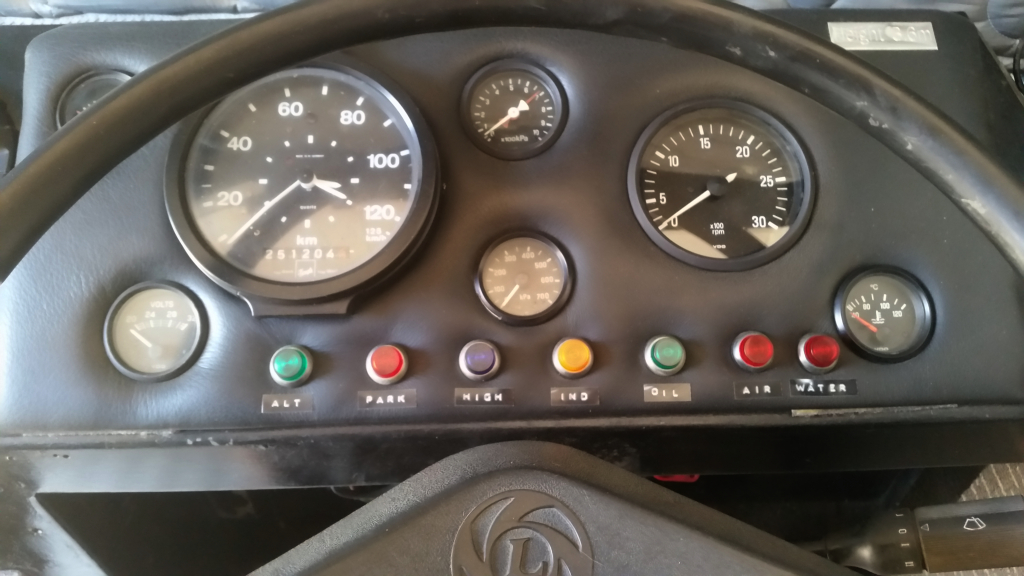
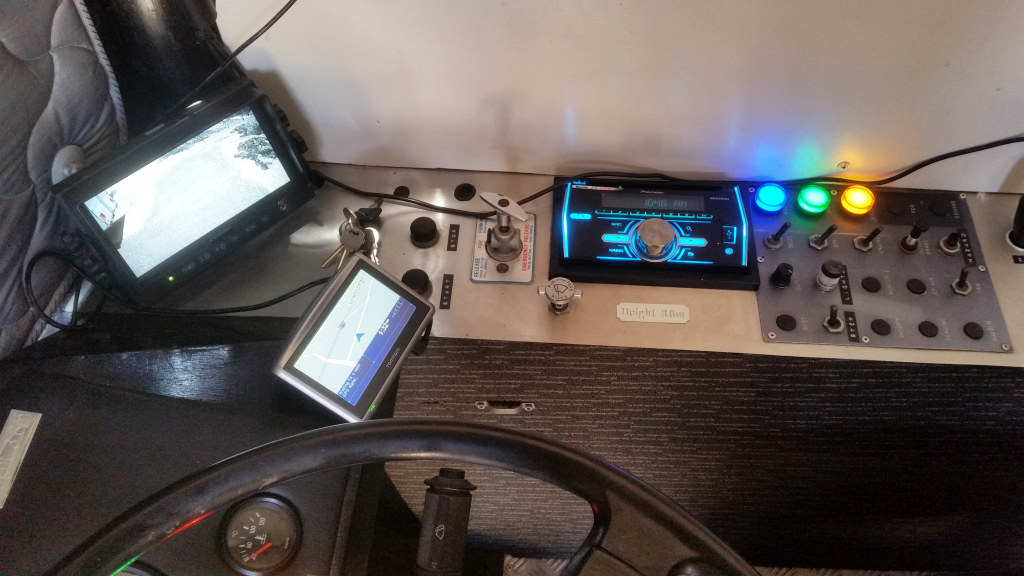
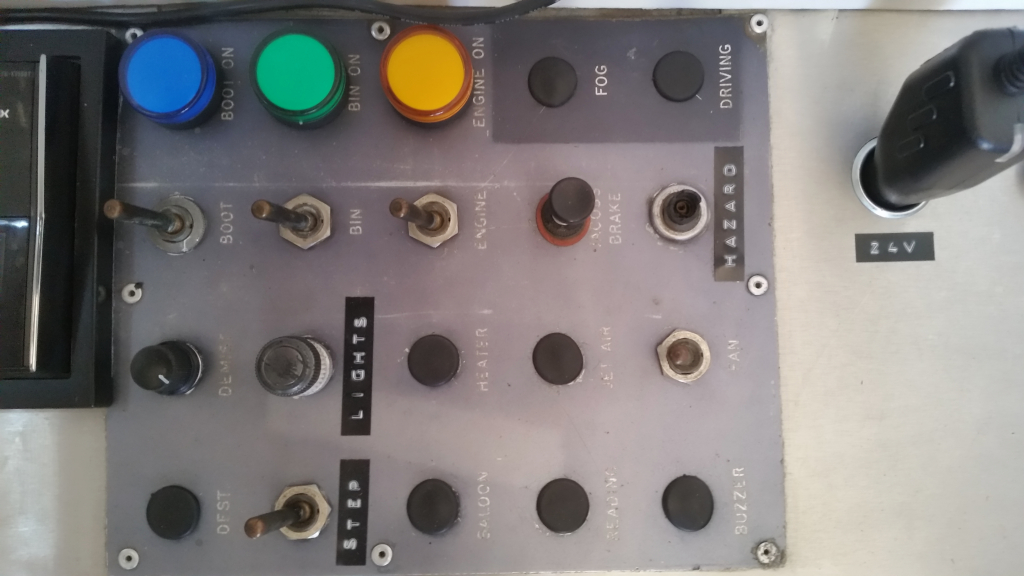
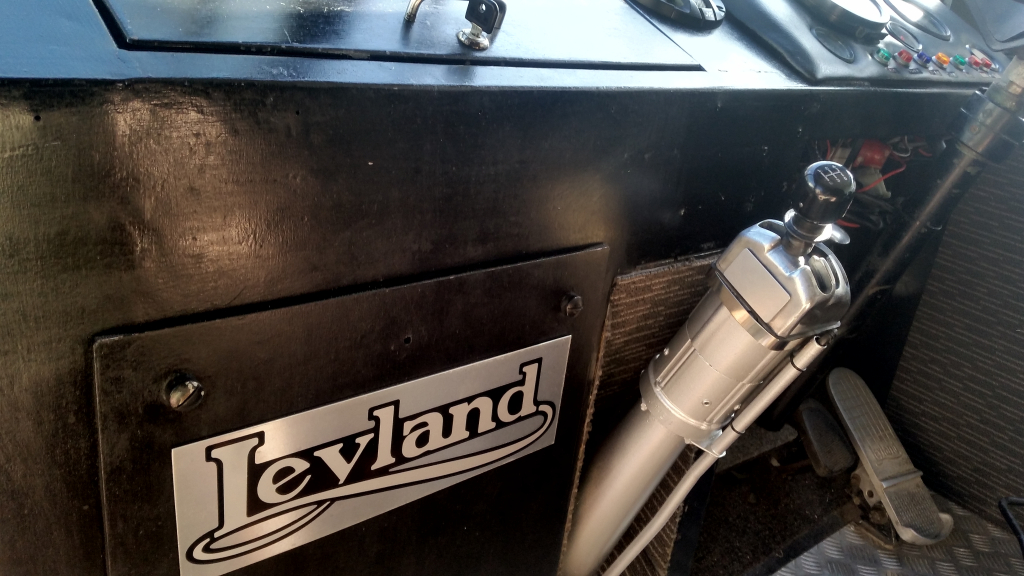
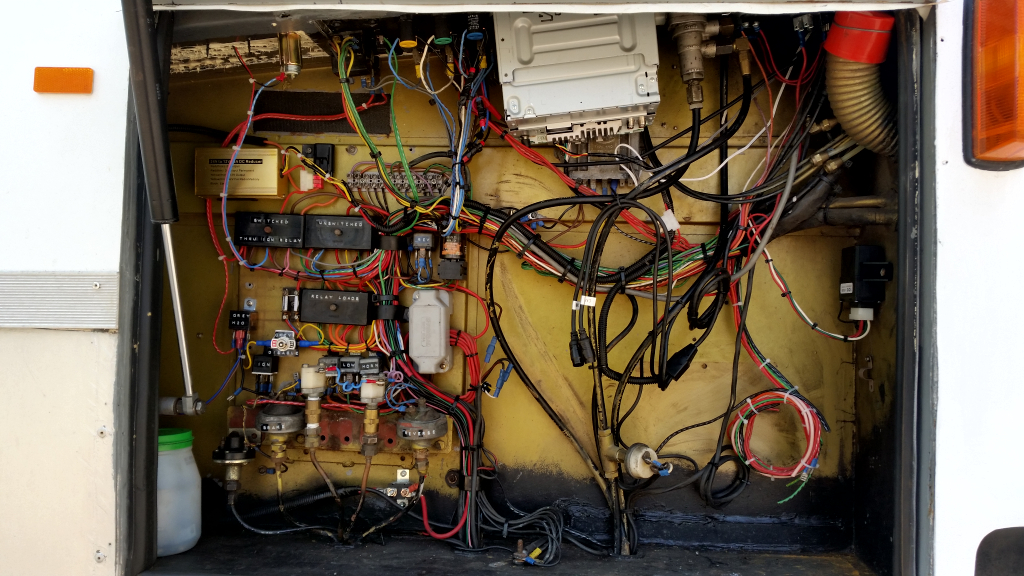
Some external restoration work starting...
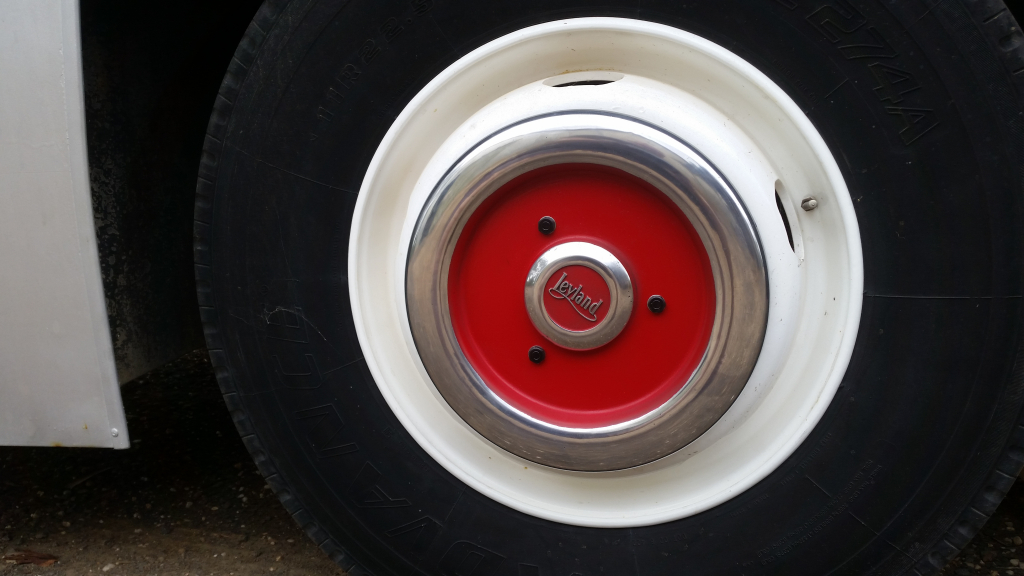
original aluminium
nut covers sourced, restored and fitted, front...
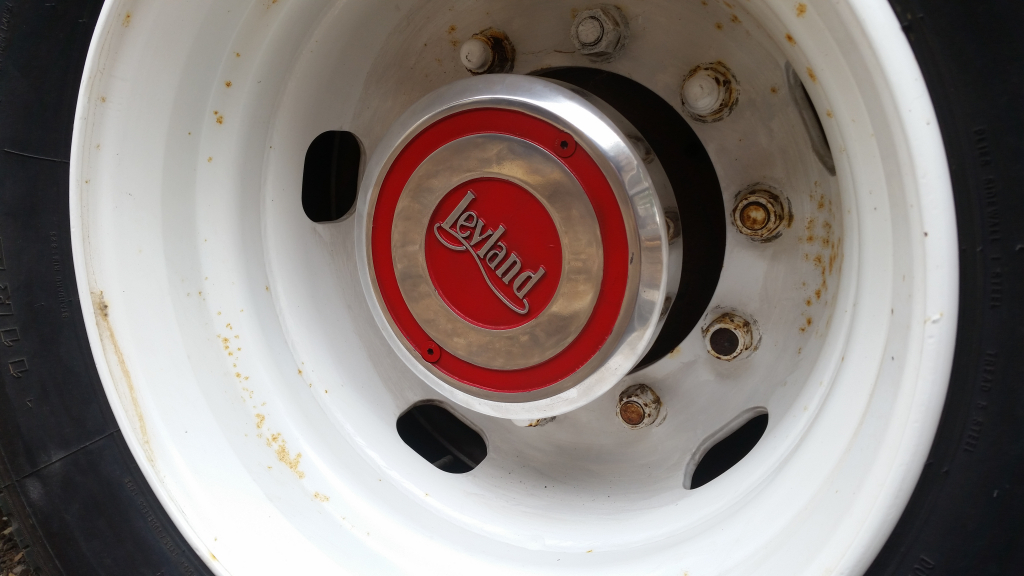
...and rear.
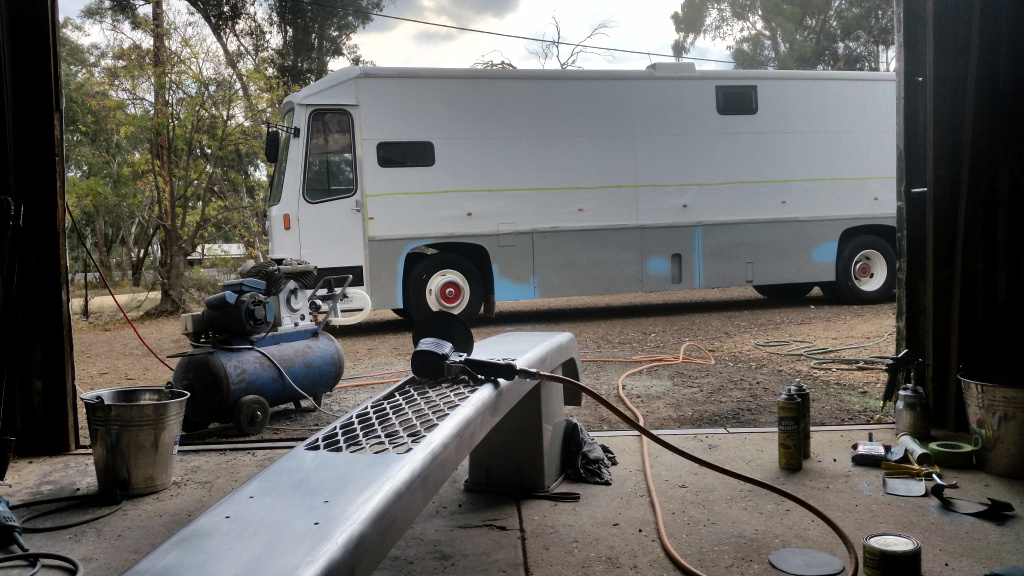
Aluminium
bumpers removed for restoration and polishing, and lower side panels have
dents removed, some minor rust cut out, and countless layers of dubious
paint removed where necessary, etch-primed, and surfaces prepared for
eventual refinishing.
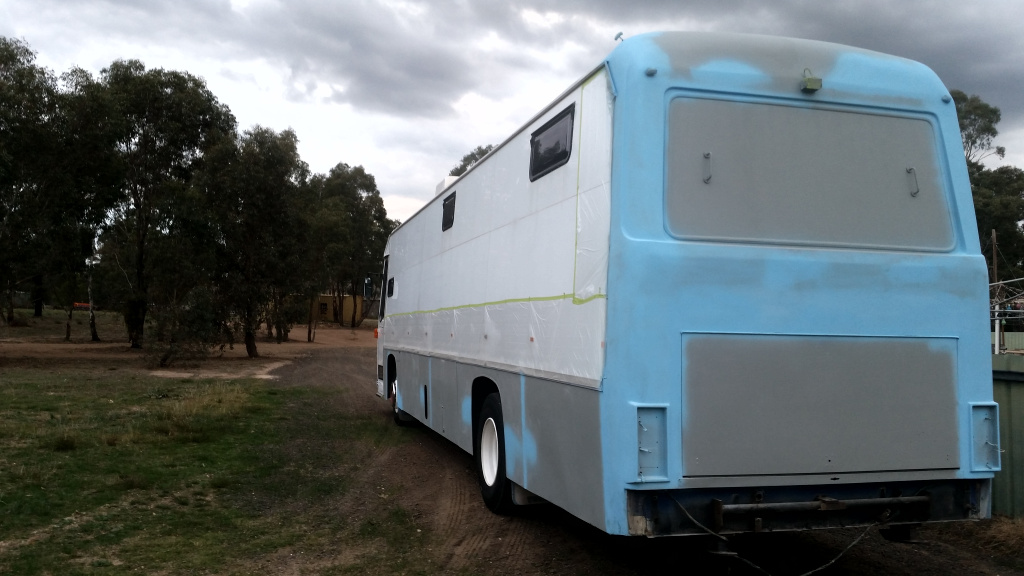
The fibreglass
rear panel needed a lot of careful preparation and rectification of previous
dubious work...
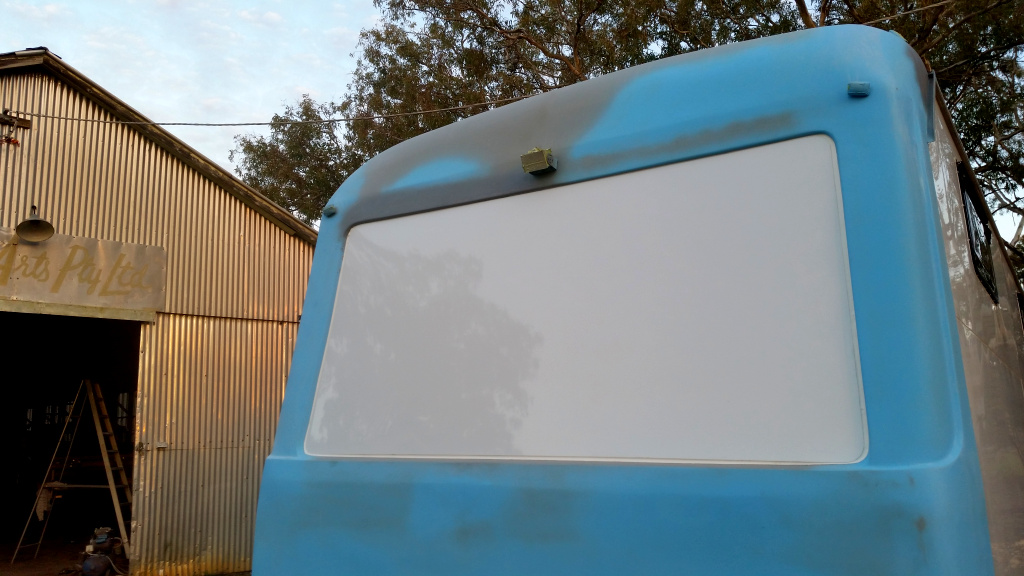
...and the
redundant rear window was removed to be replaced by a bonded aluminium
composite panel.
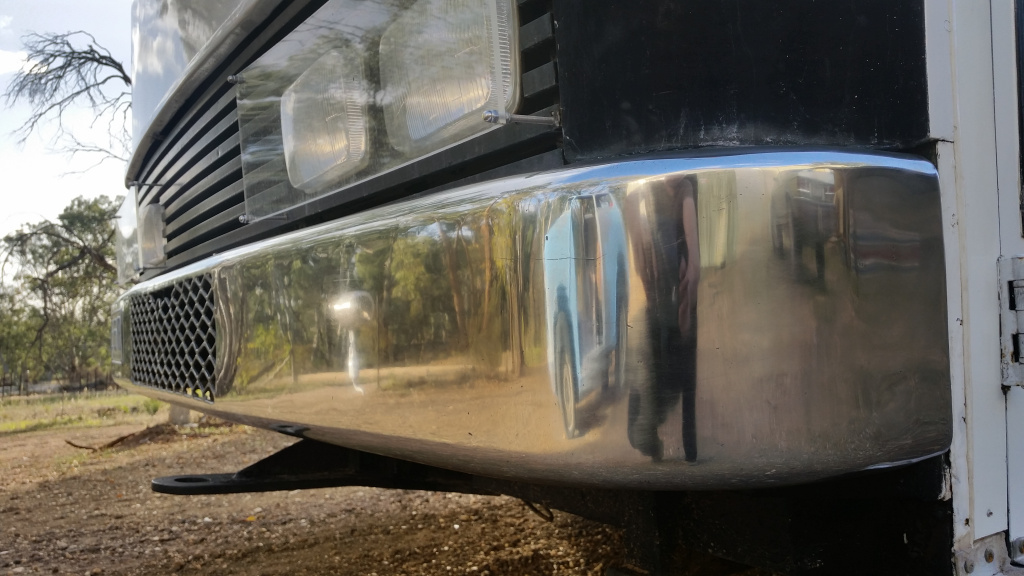
Front
bumper polished and refitted. Much nicer!


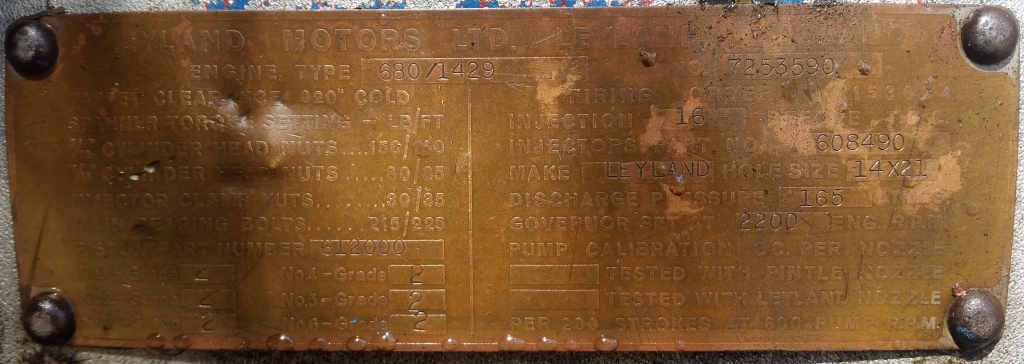
A few details
-
Converted in 2015 into a very comfortable 11.5 metre home on wheels.
-
Heaps of storage under bed and in many cupboards, and 'his' & 'hers' wardrobes.
-
Ceramic cassette toilet and separate full-size shower (heaven!)
-
Washing machine and vanity.
-
Galley two-sided kitchen with slow-closing drawers and overhead cupboards, 3 burner gas cooker with oven (12V electric start), 161 ltr fridge/freezer, bench dining seat.
-
Professional electrical fitout with 12v/24v/240v with wiring in place for AC to be fitted.
-
Automatic hot water, either 240V or LPG.
-
50mm commercial refrigeration-grade insulation in the walls and roof; incredibly comfortable with such insulation.
-
2 x 200 watt solar panels 4 x 250 ah Fullriver house batteries plus 2x 30 watt solar panels for trickle charge for bus batteries.
-
512 litres fresh water over 3 tanks, 160 litres grey water with remote electrical control and automatic closing when engine shut down (no embarrassing inadvertent dribbles at campsites).
-
1 x under bin storage 1 x boot storage.
-
265 litre fuel tank.
-
Mid mount Leyland O.680 engine with fluid flywheel, pneumocyclic 5-speed gearbox and 2-speed Eaton differential (3.3 & 4.5:1 ratios).
Recent work done
-
Lots of original 24V wiring - now obsolete - removed and remaining wiring tidied up.
-
Long-seized demister fan motor replaced and infinite speed control added. Oscillating fans fitted for driver and passenger.
-
All warning lights and buzzers repaired or reinstated (Low air and oil pressure, low water level etc).
-
Incorrect oil in fluid flywheel (much too thin) replaced by correct oil, resulting in much better driveability, power and fuel economy. All other lubricants and fluids also replaced.
-
Exhaust brake repaired / reinstated.
-
Eaton 2-speed differential selector switch (worked very intermittently) replaced and correctly wired.
-
Power steering pump correctly positioned and tensioned to eliminate slippage and belt squealing.
-
GPS speedometer/odometer fitted.
-
Electrical control added for grey water, making it impossible to forget to shut the valve when setting up at a new location, and much less messy to drain.
-
Double USB outlets fitted at seating positions, loungeroom / entertainment area and both sides of bedroom.
-
Remote control of main aisle lighting reinstated with controls mounted both ends of aisle plus a 'roving' control.
-
Various detailed areas of panelling and timber framework redone for reasons of appearance and future access to wiring etc.
-
1000W pure sine wave inverter installed for washing machine when required.
-
5kW diesel heater fitted.
Some photos of the bus in previous lives
Southdown Motor Services / National Bus Company (UK)
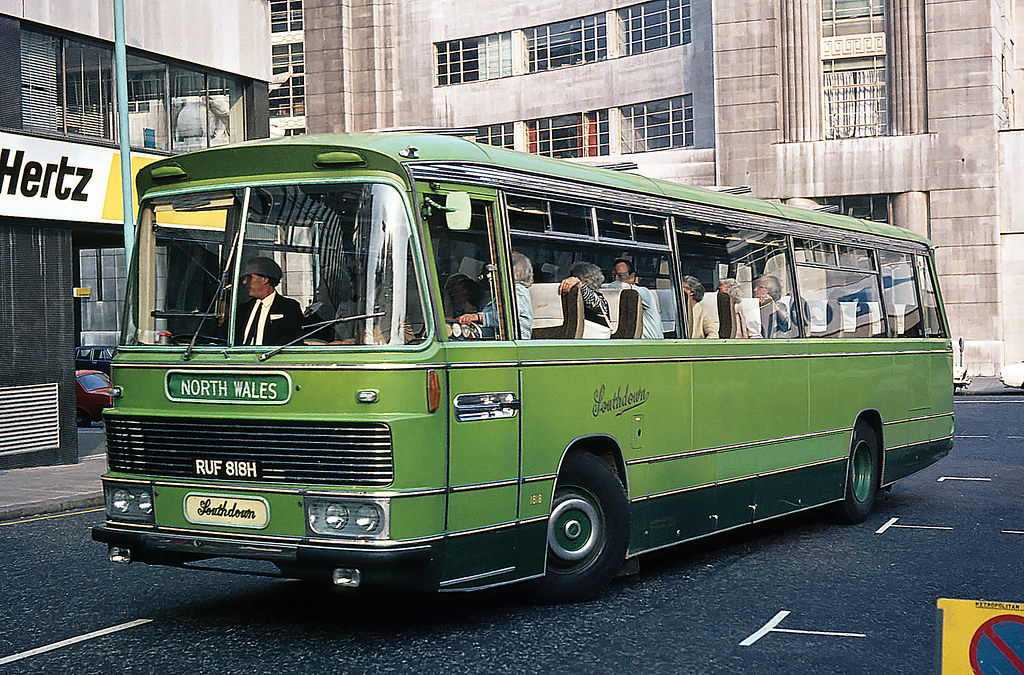
This stunning photograph shows the actual coach in 1973
pulling into London Victoria after returning from a tour of North Wales, with its original Duple Northern Commander IV body, and in the
original green Southdown Motor Services livery. It was fitted with just 32
luxury seats, rather than the usual 47 to 53 seat configuration.
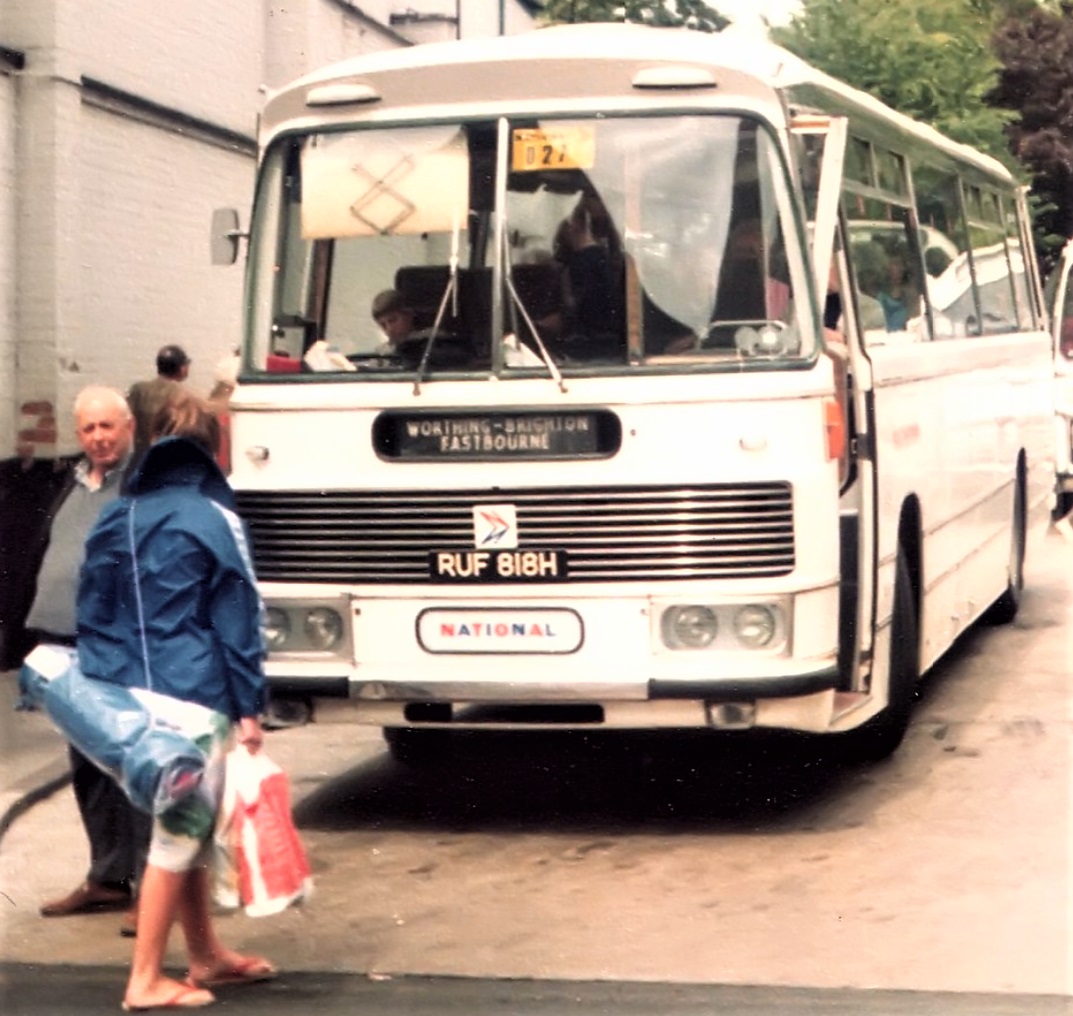
Here is the same coach several years later, in the white National Bus Company livery.
By the mid 1980s this attractive body had been scrapped and the chassis sent to Australia where it was rebodied by
Austral.
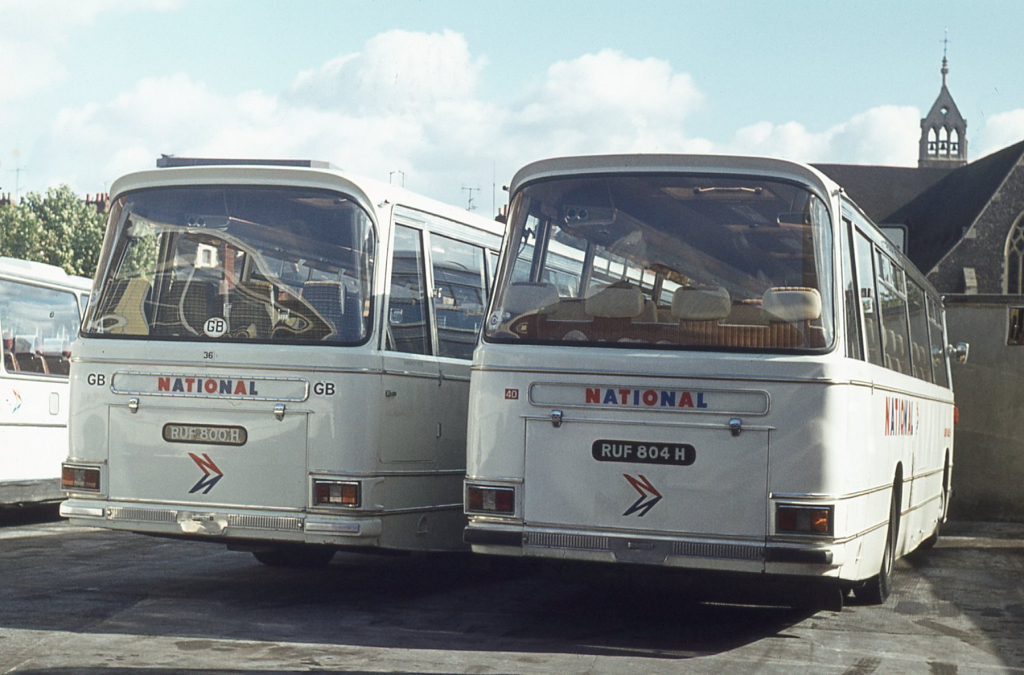
This photo of two
other coaches from the same batch of
twenty shows the rarely-seen rear view of the original Duple Northern
Commander IV body.
Hopkinsons Coaches, Smithfield NSW (Australia)
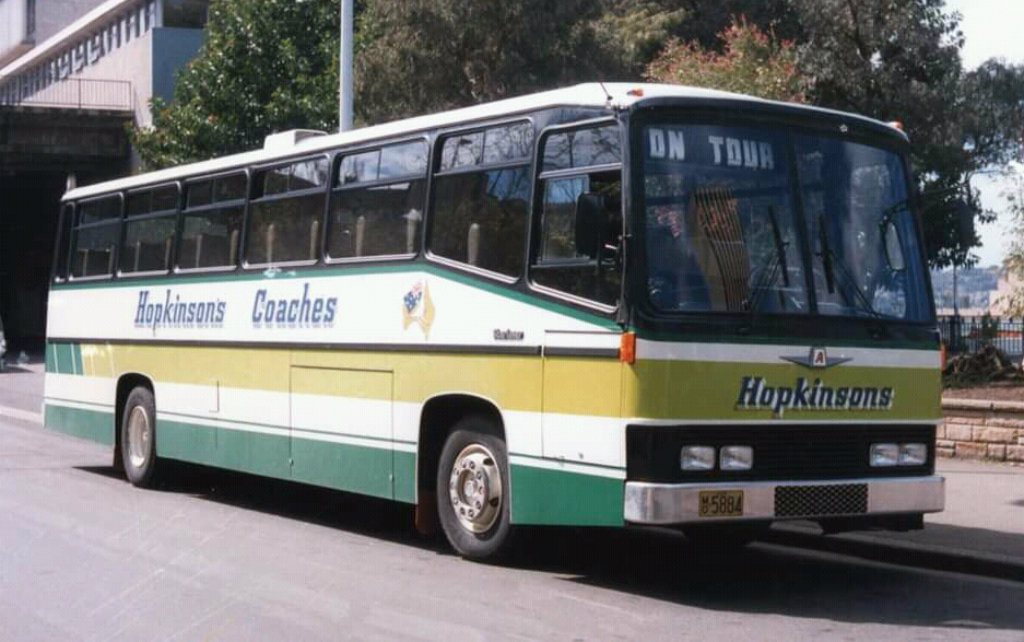
A new life and look in Australia. Initially with
Hopkinsons Coaches, as m/o5884 © Ty Manning.
Martyrs Bus Service, Warburton Vic (Australia)

Parked outside the old Martyrs depot, Main St,
Warburton, in 1991 © Peter Kane.
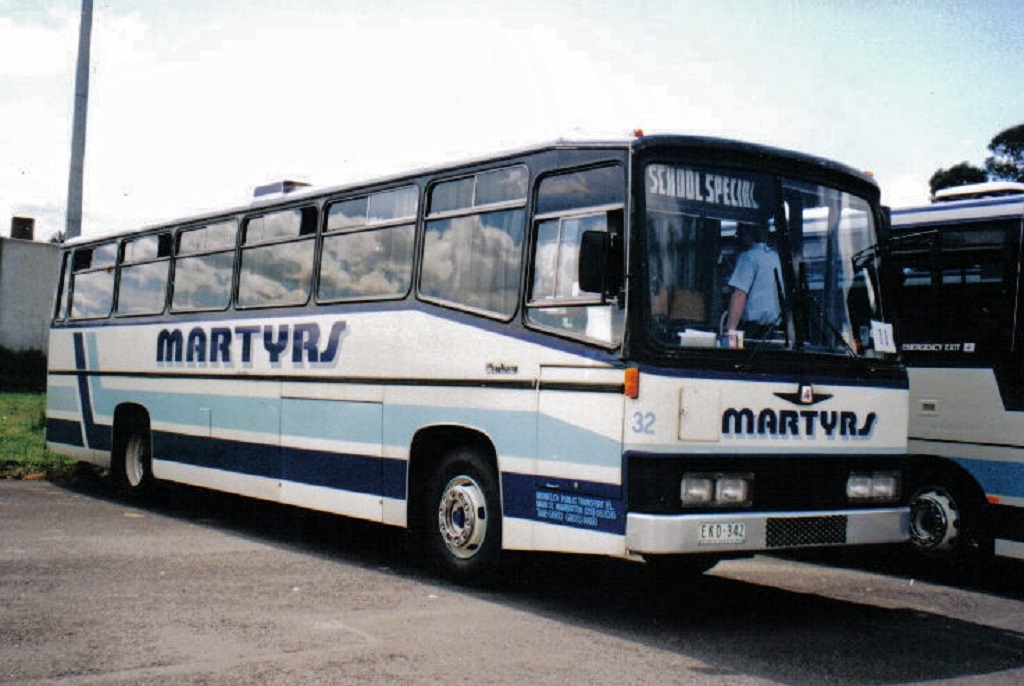
Parked at Martyrs Bus Service depot, Kellys Rd,
Warburton later in the 1990s © Martyrs Bus Service.
Wallace Coaches, Ulverstone, Tas (Australia)
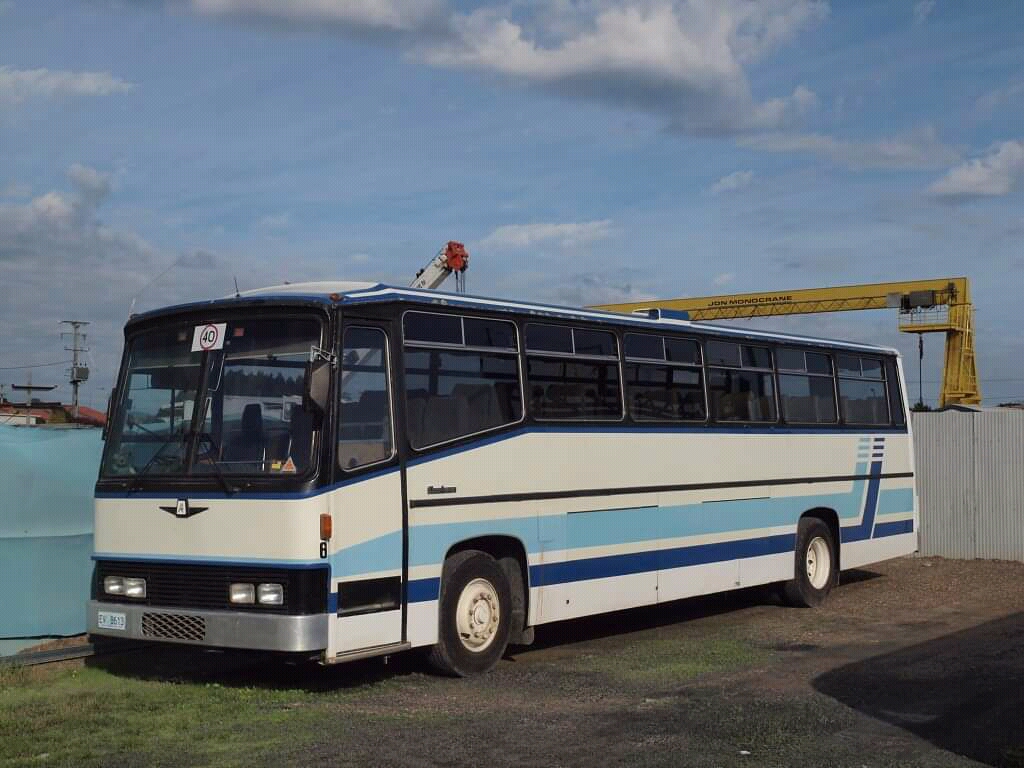
Pictured after being withdrawn from the Martyrs
fleet and sold to Wallace Coaches in Ulverstone, Tasmania.
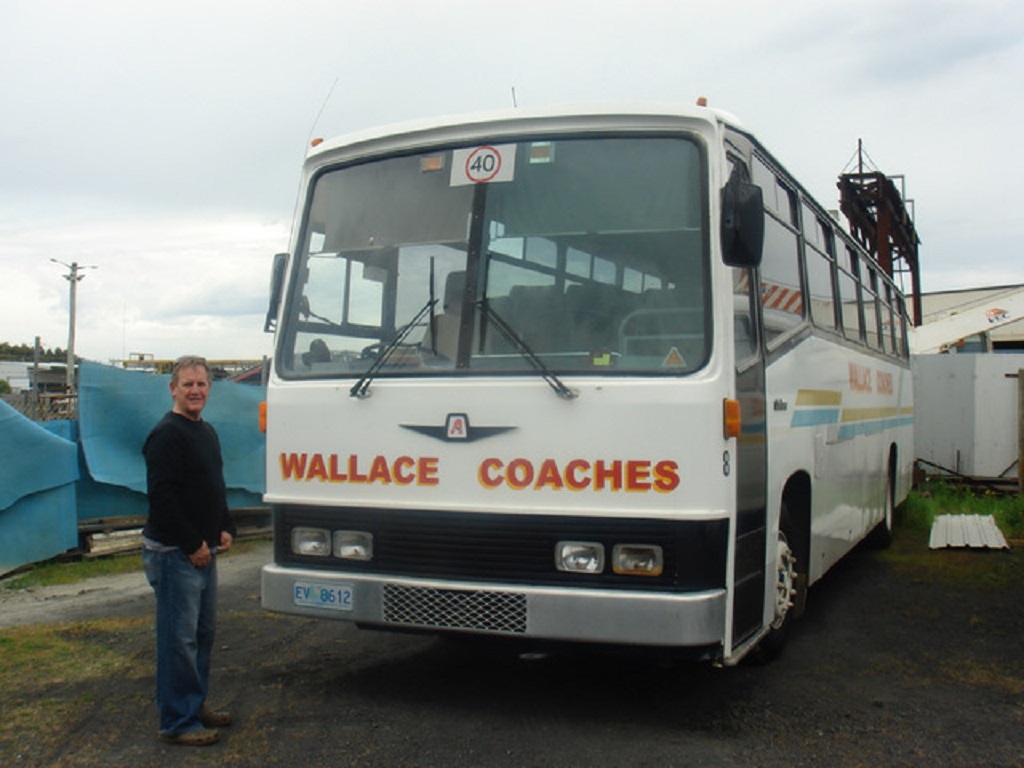
and here in its subsequent Wallace Coaches
livery.
*PSU3A/4RT model code explained. PSU3A denotes P=Postwar, S=Single deck, U=Underfloor engine, 3=11 metre chassis, A=post-1968 Rationalised Pneumocyclic gearbox, while /4R suffix denotes 4=Pneumocyclic Coach, R=Right Hand Drive, T (interesting and rare)= Two-speed Eaton differential.
**Austral was originally formed as Athol Hedges, later becoming Domino Hedges, then Domino, before becoming Austral in 1982. In December 1988 Austral was sold to JRA Limited who also owned Denning, Austral's largest rival in the coach market. Both coexisted until 1992, when the Denning plant in Acacia Ridge was closed, and all production transferred to the Austral factory, becoming Austral Denning. Finally in 1998 it was sold to Clifford Corporation and rebranded Austral Pacific, until the collapse of Clifford Corporation and the closure of the factory in 1998.